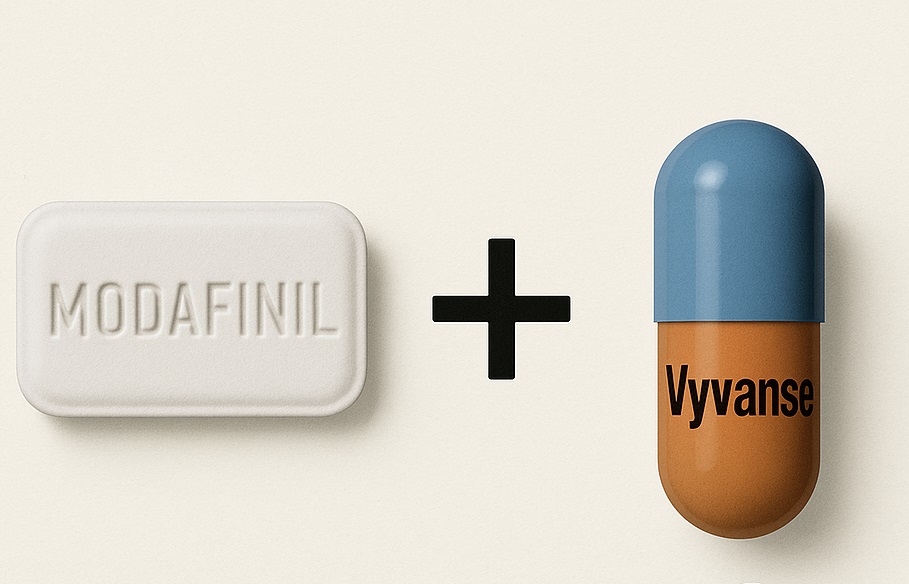Combining modafinil and Vyvanse (lisdexamfetamine) is a subject of interest for individuals seeking enhanced cognitive performance or managing conditions like ADHD and narcolepsy. While both medications are stimulants, they have distinct mechanisms of action and potential interactions that warrant careful consideration.
Understanding Modafinil and Vyvanse
- Modafinil: A wakefulness-promoting agent approved for narcolepsy, sleep apnea, and shift work sleep disorder. It enhances alertness and cognitive function by influencing neurotransmitters like dopamine and norepinephrine.
- Vyvanse (Lisdexamfetamine): A prodrug converted into dextroamphetamine, primarily prescribed for ADHD and binge eating disorder. It increases the levels of dopamine and norepinephrine, improving attention and reducing impulsivity.
Potential Risks of Combining Modafinil and Vyvanse
While some anecdotal reports suggest enhanced focus and productivity when combining these drugs, medical literature advises caution due to potential risks:
1. Cardiovascular Concerns
Both medications can elevate heart rate and blood pressure. Their combined use may amplify these effects, increasing the risk of cardiovascular issues such as hypertension, palpitations, or even more severe events in susceptible individuals.
2. Central Nervous System Overstimulation
The synergistic stimulant effects can lead to anxiety, restlessness, insomnia, or agitation. Overstimulation may impair cognitive function rather than enhance it, counteracting the intended benefits.
3. Reduced Therapeutic Efficacy
Some evidence suggests that modafinil may reduce the effectiveness of Vyvanse, potentially diminishing its therapeutic benefits for ADHD management.
4. Increased Risk of Dependence
Both drugs have abuse potential. Their combination may heighten the risk of psychological dependence, especially in individuals with a history of substance misuse.
Clinical Recommendations
- Medical Supervision: Consult a healthcare provider before combining these medications. A thorough assessment of medical history and current health status is essential.
- Monitoring: Regular monitoring of cardiovascular parameters and mental health status is crucial to detect adverse effects early.
- Dosage Adjustments: If combination therapy is deemed necessary, careful dosage adjustments and timing strategies should be implemented to minimize risks.
- Alternative Therapies: Consider alternative treatments or behavioral therapies that may offer similar benefits with fewer risks.
Conclusion
While combining modafinil and Vyvanse may offer enhanced cognitive effects for some, the potential risks often outweigh the benefits. Due to the lack of robust clinical studies supporting this combination, it is generally not recommended without strict medical supervision. Patients should engage in open discussions with their healthcare providers to explore safer and more effective treatment strategies tailored to their individual needs.
